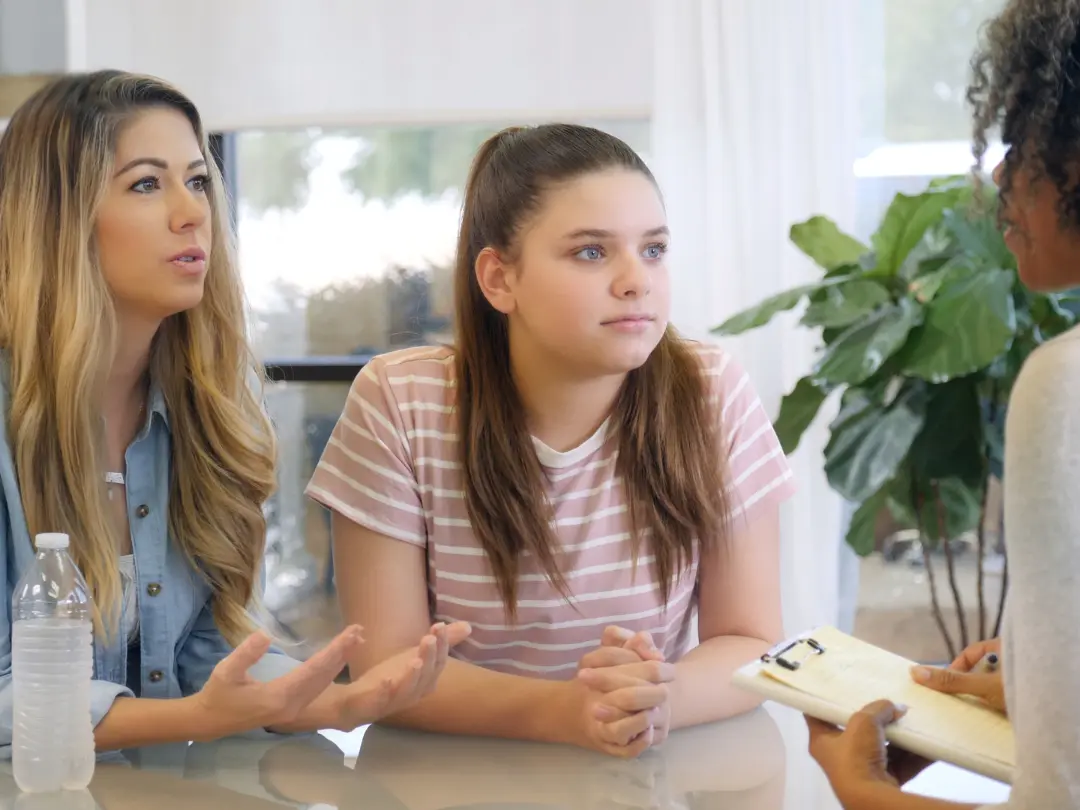It can be hard for us to understand why someone would stay in a toxic relationship. When we see someone we care about in an unhealthy or abusive relationship, the first question seems almost too obvious: “Why don’t you just leave?” The answer, on the other hand, is much more complicated.
How do you know if you’re in a toxic relationship?
A toxic relationship can be any relationship that threatens your well-being– physically, mentally, or emotionally. So why do we stay in unhealthy relationships? A trauma bond, breakup procrastination, or fear of abandonment are all reasons why someone might stay in a toxic relationship. It’s important to recognize the signs of a toxic relationship and understand how certain behaviors could be prolonging the cycle of abuse.
Toxic relationships can cause trauma bonding
Trauma bonding might sound like it was caused by one traumatic event, but that’s not often the case. Trauma bonding is a psychological response to a cycle of abuse. And that’s exactly why a trauma bond has so much power over us – the explosive fights followed by making up, the cycle of devaluation and idealization, repeated over time, creates a strong chemical and hormonal bond between victim and abuser.
Signs of trauma bonding
- You decided to leave the relationship but you can’t, or you find yourself coming back
- You lie or make excuses for your partner to your friends and family
- You recognize characteristics in your partner that remind you of a toxic relationship or caregiver in your past
- You justify your partner’s abusive actions with their traumatic past
A trauma bond might include minimizing or rationalizing emotionally or physically abusive behaviors as a way to cope. Over time, these survival mechanisms end up tethering us to the person we want to leave. Since a trauma bond is a subconscious attachment, it can be hard to recognize and even harder to overcome. Narcissistic partners are especially skilled at exploiting their partner’s vulnerabilities in order to reinforce this cycle of trauma bonding.
Toxic relationships can result in “breakup procrastination”
Procrastination is a common coping mechanism, but it can be a trauma response, too. Even if someone wants to leave a toxic relationship, they may put it off and tell themselves it’s better to wait. “After the holidays” turns into “once I have enough money” or “when the kids are older.” But our ability to put off a painful breakup comes back to science. We procrastinate because we’re unconsciously triggered by a traumatic breakup in our past, whether we’ve processed it or not.
Breakup procrastination can trigger a cycle of shame for the person trying to leave the toxic relationship, reinforcing the trauma bond. We might feel guilty for not leaving or even angry at ourselves for our fight or flight response– or lack thereof. We often forget that when it comes to dealing with toxic relationships, another trauma response is to freeze. After employing coping mechanisms all day just to survive, a person suffering from a toxic relationship won’t have the energy to fight or leave.
Toxic relationships can create and cultivate fear
Toxic relationships are so hard to leave behind because they exploit our worst fears. In an unhealthy relationship, our deepest insecurities and softest vulnerabilities are used against us to create enough fear to paralyze us. Not only do we feel betrayed by our partner, but this new dynamic helps to cultivate that fear within us. “What if what they said about me is true?” can quickly spiral into “No one else could ever love me.”
The fear of rejection, loneliness, retribution, abandonment, change, or even making the wrong decision are all valid reasons that someone might give for staying in a toxic relationship. This fear, once created and cultivated within them, informs every choice they make until they feel like they have no choice but to stay in a toxic relationship. Try to discern which fears feel manipulative to you and which feel reflective– this process can also help to highlight what is in your control.
You don’t have to stay in a toxic relationship for another day.
It can be incredibly difficult to leave someone you love, even if you know they’re bad for you. But counseling and therapy can help you recognize the signs of a toxic relationship and better understand the coping mechanisms that keep you from leaving a cycle of abuse.
The licensed therapists at New Hope Counseling and Wellness Center prioritize trauma-informed care for those suffering from domestic violence, intimate partner violence, eating disorders, PTSD, and mental health disorders. With trauma-informed care, you can learn to overcome trauma bonding, stop procrastinating, and begin your journey of personal development without fear.
Contact New Hope today to reclaim your best self!
If you or a loved one are a victim of domestic violence, contact the National Domestic Violence Hotline at
1-800-799-7233 for confidential assistance from trained advocates.








